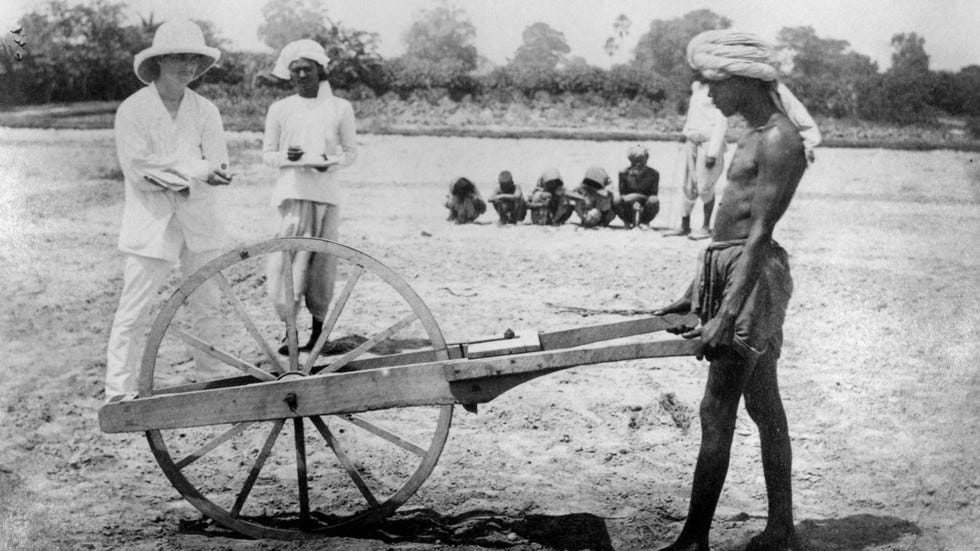Majority of intellects in Pakistan firmly believe the British raj – when the Britain ruled over India from 1857 to 1947 – was a flourishing period. Their views depict their lack of knowledge about history. Not knowing that the impacts of British rule on Indian economy was very very negative!
Britain destroyed
each and every aspect of Indian culture and economy, especially those which are
related to Muslims.
India was
more prosperous than it was during and before the British Raj. In this article,
we will explain how Britain looted India, what are the impacts of British rule
on Indian economy, and how she destroyed its economy, architecture, education,
religion & culture.
Britain
in India:
Britain set
its foot in India in 1600 C.E. Akbar’s son, Jahangir, was ruling India during
that time. Whether Jahangir was a corrupt and irresponsible ruler is a
different story. History proved that allowing Britain to form trade with India
and its company – the East India Company - to enter the land was his biggest
blunder
Britain Destroying
Indian Industry:
At the time
Britain step foot on India, the country was participating with 23% of global
GDP.
By the end
of the eighteenth century, Britain was shifting its method of earning from the
land to the industry. India was a mouth-watering economy then. She was a country
which was as manufacturing as it was agricultural. For Britain’s industry and
economy to work effectively, It was important for it to deindustrialize India.
A first look
at the history gives clear thought of the British’s motive to loot all the
riches of the land. As an implication, it was mandatory for Britain to make
India its colony. Jawaharlal Nehru, India’s first Prime Minister, stated this
observation in his book, the discovery of India.
Impacts
on poverty:
Britain
applied every policy to destroy Indian industry and decay its agriculture. The
idea was to lower her status from a manufacturing country to an agricultural
country. They (the British) not only looted the land’s treasures, but also the
word ‘loot’ in Hindi dictionary along with the word’s true spirit.
Poverty was
on the rise in India due to British despotic policies. Britain was successful
in lowering India to the point she is today.
Britain sought to destroy Indian
economy
Colonial
Britain tried its every effort to destroy Indian economy. The imposed tariffs
and duties on Indian products aided her to achieve those goals.
-
Britain left India with less than 4% share of global
GDP.
-
India became world's biggest purchaser of Britain’s finished
goods
-
Indian share in global exports dropped to less than 2%
from 27%.
-
India was exporting raw material and importing
finished goods from Britain.
-
Violence and racism was reality of colonialism.
Railways and roads was built to serve
the British.
-
British aid to India was 0.4% of its total gdp.
Indians were
purchasing products from Britain at higher prices for the products they were
producing at lower costs.
Pakistan
follows similar practice. They locally produce goods at lower rates and buy
goods after those are given a brand-name at very higher prices.
Interestingly, Pakistani people brag about using ‘foreign
goods’ and look down upon local people because they use ‘home-made products.
Destroying
Indian Culture:
-
Ethnic, racial & religious tension were the direct
result of the British experience.
-
Most of the Islamic schools-of-thoughts are formation
of the era of the British raj.
-
British soldiers engraved their names on historical
monuments, such as the Red Fort of Lahore, to ruin the archeological remains.
Should the people of then India, which has now decomposed into Pakistan, India and Bangladesh, demand reparation? I believe Britain should return the treasures they looted along with an apology.





0 Comments